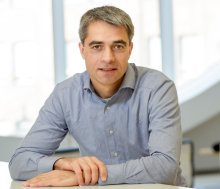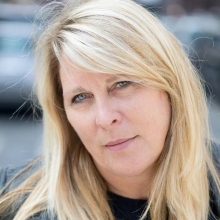CLARIN is pleased to announce the CLARIN Annual Conference 2023 and calls for the submission of extended abstracts. CLARIN is the European research infrastructure that makes digital language resources available to scholars, researchers, students and citizen-scientists from a wide range of disciplines, coordinates the collection of language resources and tools, and offers advanced tools to explore, exploit, annotate, analyse or combine such datasets, regardless of their location.
Extended submission deadline: 28 April 2023 (closed)
Location
After the successful hybrid edition of 2022, we plan to repeat the same format in 2023. The CLARIN Conference 2023 will be a face-to-face event, which will also be fully accessible virtually. The conference will take place in the historic city of Leuven, Belgium, at the heritage campus of the Irish College. The event will be hosted and organised by CLARIN ERIC, in collaboration with KU Leuven, CLARIN-BE and the Instituut voor Nederlandse Taal.
Important Dates
- 23 January 2023: First call published on CLARIN website, disseminated, and submission system open
- 28 April 2023: Extended deadline
- 4 July 2023: Notification of acceptance
- 4 September 2023: Camera-ready version deadline
- 16-18 October 2023: CLARIN Annual Conference
Conference Aims
The CLARIN Annual Conference is organised for the wider Humanities and Social Sciences (SSH) community in order to exchange experiences and best practices in working with the CLARIN infrastructure and to share plans for future developments. The programme will cover a range of topics, including the design, construction and operation of the CLARIN infrastructure, the data, tools and services that it contains or should contain, its actual use by researchers, teachers or interested parties, its relation to other infrastructures and projects, and the CLARIN Knowledge Infrastructure.
Keynote Speakers

Jörg Tiedemann is professor of language technology at the Department of Digital Humanities at the University of Helsinki. He received his PhD in computational linguistics for work on bitext alignment and machine translation from Uppsala University before moving to the University of Groningen for 5 years of post-doctoral research on question answering and information extraction. His main research interests are connected with massively multilingual data sets and data-driven natural language processing and he currently runs an ERC-funded project on representation learning and natural language understanding.

Laurence Devillers is professor of computer science at the University Paris-Sorbonne IV/LIMSI CNRS.
Conference Topics
We invite submissions describing CLARIN-related work addressing the following aspects:
Use of the CLARIN Infrastructure:
- Use of the CLARIN infrastructure in SSH research and beyond
- Usability studies and evaluations of CLARIN services
- Analysis of the CLARIN infrastructure usage and impact studies/use cases
- Identification and analysis of user audiences and developer communities, including digital humanities, libraries, computer science, information science, cognitive science and human-centred AI
- Showcases, demonstrations and research projects that are relevant to CLARIN
- Teaching and learning cases for which CLARIN resources and services are used.
Design and Construction of the CLARIN Infrastructure:
- Recent tools and resources added to the CLARIN infrastructure
- Metadata and concept registries, cataloguing and browsing
- Persistent identifiers and citation mechanisms
- Access, including authentication and authorisation
- Search functions, including Federated Content Search
- Web applications, web services and workflows
- Standards and solutions for interoperability of language resources, tools and services
- Models for the sustainability of the infrastructure, including curation, migration financing and cooperation
- Legal and ethical issues in operating the infrastructure.
CLARIN Knowledge Infrastructure and Dissemination:
- User assistance (help desks, user manuals, FAQs)
- CLARIN portals and outreach to users
- Videos, screencasts, recorded lectures
- Researcher training activities, hackathons
- Knowledge infrastructure centres.
CLARIN vis-à-vis other Infrastructures and Initiatives:
- SSH research infrastructures, such as DARIAH and CESSDA and the collaboration under the umbrella of the SSH Open Cluster, etc.
- Generic infrastructural initiatives, such as EOSC, Europeana, Language Data Space, etc.
- Projects such as EOSC Future, FAIRCORE4EOSC and TRIPLE
- National and regional initiatives
Format of the Programme Sessions
Submissions
The language of the conference is English and presentations will be made in English. Proposals for oral, poster or demo presentations must be submitted as extended abstracts (length: 3 to 4 pages A4, including references) in PDF format, in accordance with the template (ZIP-archive, Overleaf template). Authors can choose whether to submit on an anonymous or non-anonymous basis.
Extended abstracts should address one or more topics that are relevant to CLARIN’s activities, resources, tools or services. This relevance should be explicitly articulated in the submission, as well as in the presentation at the conference. Contributions addressing desiderata for the CLARIN infrastructure that are currently not in place are also eligible. It is not required for authors to be or have been directly involved in national or cross-national CLARIN projects.
Extended abstracts must be submitted through the EasyChair submission system and will be reviewed by the Programme Committee. All proposals will be reviewed on the basis of the following criteria:
- Appropriateness: The contribution must pertain to the CLARIN infrastructure or be relevant for it (e.g. its use, design, construction, operation, exploitation, illustration of possible applications, etc.), and this relevance should be explicitly articulated in the submission.
- Soundness and correctness: The content must be technically and factually correct and methods must be scientifically sound, according to best practice, and preferably evaluated.
- Meaningful comparison: The abstract must indicate that the author is aware of alternative approaches, if any, and highlight relevant differences.
- Substance: Concrete work and experiences will be given preference over ideas and plans.
- Impact: Contributions with a higher impact on the research community and society more broadly will be given preference over papers with lower impact.
- Clarity: The abstract should be clearly written and well structured.
- Timeliness and novelty: The work must convey relevant new knowledge to the audience at this event.
Attendance
Proceedings
Conference Programme Committee
The Programme Committee for the conference consists of the following members:
- Krister Lindén, University of Helsinki, Finland (Chair)
- Starkaður Barkarson, Árni Magnússon Institute for Icelandic Studies, Iceland
- Lars Borin, University of Gothenburg, Sweden
- António Branco, University of Lisbon, Portugal
- Tomaž Erjavec, Jožef Stefan Institute, Slovenia
- Eva Hajičová, Charles University Prague, Czech Republic
- Marinos Ioannides, Digital Heritage Research Laboratory at the Cyprus University of Technology, Cyprus
- Monica Monachini, Institute of Computational Linguistics ‘A. Zampolli’, Italy
- Karlheinz Mörth, Austrian Academy of Sciences, Austria
- Costanza Navarretta, University of Copenhagen, Denmark
- Gijsbert Rutten, Leiden University, the Netherlands
- Maciej Piasecki, Wrocław University of Science and Technology, Poland
- Stelios Piperidis, ILSP, Athena Research Center, Greece
- Kiril Simov, IICT, Bulgarian Academy of Sciences, Bulgaria
- Inguna Skadiņa, Institute of Mathematics and Computer Science, University of Latvia, Latvia
- Koenraad De Smedt, University of Bergen, Norway
- Marko Tadić, University of Zagreb, Croatia
- Jurgita Vaičenonienė, Vytautas Magnus University, Lithuania
- Vincent Vandeghinste, Instituut voor de Nederlandse Taal (Dutch Language Institute), the Netherlands & KU Leuven, Belgium
- Tamás Váradi, Research Institute for Linguistics, Hungarian Academy of Sciences, Hungary
- Joshua Wilbur, Center of Estonian Language Resources, Estonia
- Andreas Witt, University of Mannheim, Germany
- Friedel Wolff, South African Centre for Digital Language Resources, North-West University, South Africa
- Martin Wynne, University of Oxford, United Kingdom
- Marianne Hundt, University of Zurich, Switzerland
Links
- CLARIN Annual Conference 2023 website: https://www.clarin.eu/event/2023/clarin-annual-conference-2023
- EasyChair submission: available here
- Template for submissions:
- Contact for any questions regarding the conference: events [at] clarin.eu (events[at]clarin[dot]eu) (Please mention [CLARIN2023] in the email subject)
- Proceedings of selected papers from previous CLARIN conferences:
- CLARIN 2021: https://doi.org/10.3384/9789179294441
- CLARIN 2020: https://doi.org/10.3384/ecp180
- CLARIN 2019: https://doi.org/10.3384/ecp2020172
- CLARIN 2018: http://www.ep.liu.se/ecp/contents.asp?issue=159
- CLARIN 2017: http://www.ep.liu.se/ecp/contents.asp?issue=147
- CLARIN 2016: http://www.ep.liu.se/ecp/contents.asp?issue=136
- CLARIN 2015: http://www.ep.liu.se/ecp/contents.asp?issue=123
- CLARIN 2014: http://www.ep.liu.se/ecp/contents.asp?issue=116